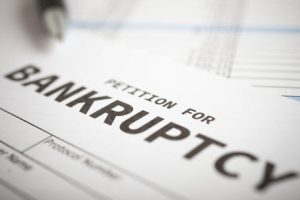Why Do Illinois Bankruptcy Judges Use Trustees?

Most baseball games have umpires and coaches. The umpire calls balls and strikes regardless of whether the call helps or hurts one team or the other; a coach pushes for the best interests of a team.
Bankruptcy judges are like baseball umpires. In any dispute between the parties, the judge determines who is right and who is wrong from a purely legal standpoint. The trustee is not exactly like a coach, but the trustee does look out for the best interests of the creditors.
Trustees in Indiana Chapter 7 Cases
In liquidation bankruptcies, Chicago trustees have basically two responsibilities.
First, the trustee conducts the 341 meeting of creditors, which takes place about six weeks after the debtor files a voluntary petition. In a Chapter 7 341, the trustee essentially verifies the debtor’s credentials (mostly that all the forms are present and the debtor has completed the required debt education classes) and confirms the debtor’s identity (nearly always with a Social Security card and a driver’s license).
At a Chapter 7 341, the trustee also collects some financial documents, such as recent tax returns and some other papers, such as mortgage notes, house deeds, or insurance policy declarations pages.
Second, the trustee evaluates all nonexempt assets to determine if a seizure and sale would benefit the creditors. Assume Debbie Debtor lives in Illinois and she has a nonexempt used car that’s in below average condition and only worth $500. The trustee may determine that, given the cost of seizing the car, repairing it, storing it, and other costs, the creditors may not benefit from such a transaction and Debbie may get to keep her nonexempt car.
In short, the trustee is not a used car salesman and s/he will not seize nonexempt assets unless the creditors stand to make a considerable profit from such a move.
Trustees in Indiana Chapter 13 Cases
In addition to the aforementioned Chapter 7 duties, Chapter 13 trustees have some additional responsibilities.
Chiefly, these trustees must examine and approve the debtor’s proposed debt consolidation and repayment plan. During the protected repayment period, which is usually five years, the debtor must make regular payments on all past due secured debts, like a home mortgage or a car note. At the end of the period, the debt must have a zero balance, so the debtor must continue to make regular payments during this period as well.
To determine the monthly debt consolidation payment amount, the trustee considers both the amount of the debt and the debtor’s income. Basically, the trustee puts the debtor on an allowance and requires that any money left over after the bills are paid go to debt retirement.
If the debtor and trustee cannot work out an acceptable payment plan, most debtors convert from Chapter 13 to Chapter 7. As a result, they do not need to catch up on secured debts and their bankruptcies close in a few months as opposed to a few years.
Trust Experienced Attorneys
Trustees are important cogs in the bankruptcy machine. For a free consultation with an experienced bankruptcy attorney in Chicago, contact the Bentz Holguin Law Firm, LLC. We routinely handle cases in both Illinois and Indiana.


